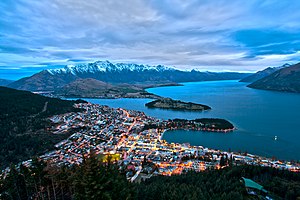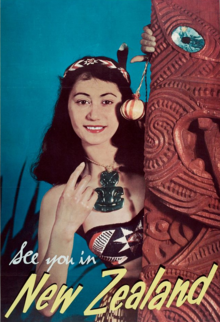
The economy of Georgia is an emerging free market economy. Its gross domestic product fell sharply following the dissolution of the Soviet Union but recovered in the mid-2000s, growing in double digits thanks to the economic and democratic reforms brought by the peaceful Rose Revolution. Georgia continued its economic progress since, "moving from a near-failed state in 2003 to a relatively well-functioning market economy in 2014". In 2007, the World Bank named Georgia the World's number one economic reformer, and has consistently ranked the country at the top of its ease of doing business index.

The economy of Vietnam is a developing mixed socialist-oriented market economy. It is the 35th-largest economy in the world by nominal gross domestic product (GDP) and the 26th-largest economy in the world by purchasing power parity (PPP). It is a lower-middle income country with a low cost of living. Vietnam is a member of the Asia-Pacific Economic Cooperation, the Association of Southeast Asian Nations and the World Trade Organization.

Tourism in Australia is an important part of the Australian economy, and comprises domestic and international visitors. Australia is the fortieth most visited country in the world according to the World Tourism Organization. In the financial year 2018/19, tourism was Australia's fourth-largest export and over the previous decade was growing faster than national GDP growth. At the time it represented 3.1% of Australia's GDP contributing A$60.8 billion to the national economy.

The tourism industry has been an important part of the economy of Hong Kong since it shifted to a service sector model in the late 1980s and early 90s. There has been a sharp increase of domestic tourists from Mainland China following the introduction of the Individual Visit Scheme (IVS) in 2003.

Tourism in New Zealand comprised an important sector of the national economy – tourism directly contributed NZ$16.2 billion of the country's GDP in the year ended March 2019. As of 2016 tourism supported 188,000 full-time-equivalent jobs. The flow-on effects of tourism indirectly contributed a further 4.3% of GDP. Despite the country's geographical isolation, spending by international tourists accounted for 17.1% of New Zealand's export earnings. International and domestic tourism contributed, in total, NZ$34 billion to New Zealand's economy every year as of 2017.

Tourism Malaysia or Malaysia Tourism Promotion Board (MTPB) is an agency under the Ministry of Tourism, Arts and Culture, Malaysia.
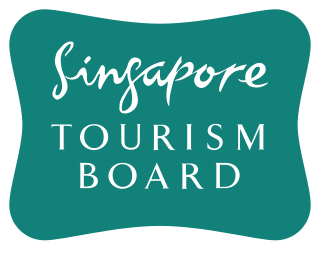
The Singapore Tourism Board (STB) is a statutory board under the Ministry of Trade and Industry of the Government of Singapore, tasked to promote the country's tourism industry.
Visit Florida is Florida's official tourism marketing corporation, serving as Florida's official source for travel planning to visitors across the globe. Visit Florida operates as a nonprofit corporation, it was created as a public/private partnership by the Florida Legislature in 1996.

India Brand Equity Foundation (IBEF) is a Trust established by the Department of Commerce, Ministry of Commerce and Industry, Government of India. IBEF's primary objective is to promote and create international awareness of the Made in India label in markets overseas and to facilitate the dissemination of knowledge of Indian products and services. Towards this objective, IBEF works closely with stakeholders across government and industry.

The Korea Tourism Organization is an organization of the Republic of Korea under the Ministry of Culture and Tourism. It is commissioned to promote the country's tourism industry.

The Pacific Asia Travel Association (PATA) is a membership association working to promote the responsible development of travel and tourism in the Asia Pacific region.

Tourism in Iceland has grown considerably in economic significance in the past 15 years. As of 2016, the tourism industry is estimated to contribute about 10 percent to the Icelandic GDP; the number of foreign visitors exceeded 2,000,000 for the first time in 2017; tourism is responsible for a share of nearly 30 percent of the country's export revenue.

Tourism in Georgia is an increasingly important component of the country's economy. In 2015 it employed around 158,500 people, producing 6.7% of Georgia's GDP and providing US$1.94 billion of revenue. In 2019, the number of international arrivals reached a record high of 9.3 million people with foreign exchange income in the year's first three quarters amounting to over US$3 billion. The country plans to host 11 million visitors by 2025 with annual revenues reaching US$6.6 billion.
Tourism and Events Queensland (TEQ) is the Queensland Government's lead marketing, experience development and major events agency, representing the state's tourism and events industries.

International tourism advertising is tourism-related marketing on the part of a private or public entity directed towards audiences abroad, and might target potential travelers and non-travelers alike. Wholly private firms such as travel agencies, hotel chains, cruise agencies, non-governmental organizations (NGOs) often run their own advertising campaigns to market their existence, mission, or services and/or goods offered to the consumer, and these advertisements seldom carry intentional political messages.
The Seychelles Tourism Board (STB), a public/private sector body headed by CEO Mrs. Sherin Francis, with Mrs. Kathleen Mason as Chairperson, oversees most aspects of Seychelles' tourism industry whose Minister is Mr. Didier Dogley. The Seychelles Tourism Board is responsible for the promotion and marketing of the Seychelles islands as the preferred tourist destination.
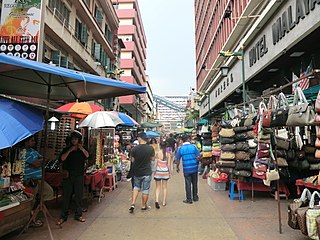
Fashion tourism is a niche market segment evolved out of three major sectors: Creative Tourism, Cultural Tourism and Shopping Tourism. Fashion Tourism can be defined as “the interaction between Destination Marketing Organizations (DMOs), trade associations, tourism suppliers and host communities, with people travelling to and visiting a particular place for business or leisure to enjoy, experiment, discover, study, trade, communicate about and consume fashion.”

South African Tourism is the official national marketing agency of the South African government, with the goal of promoting Tourism in South Africa both locally and globally.
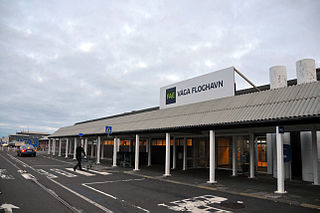
Tourism in the Faroe Islands is a growing industry. The official tourist board is Visit Faroe Islands, which is overseen and organized by the Ministry of Environment, Industry and Trade.
Tourism Fiji is a Fijian government marketing agency responsible for promoting Fiji as a tourism destination abroad. Formerly known as the Fiji Visitors Bureau, the agency was established under the Tourism Fiji Act 2004 and is under the jurisdiction of the Ministry of Commerce, Trade, Tourism and Transport.
